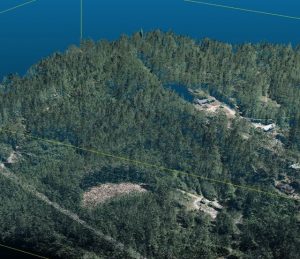ESRM Course Schedule and Major Requirements

Admission to the ESRM major (All Pathways/Options)
The Environmental Science and Terrestrial Resource Management (ESRM) major (including all ESRM degree options) is a Minimum Requirements major, which means all students who complete the Minimum Requirements for Admission are admitted to the major. All details regarding ESRM Admission are available under ESRM Admissions. Transfer Applicants should be aware that there are some significant issues regarding completing the Minimum Admission course requirements at other colleges/universities that may involve you needing to complete more courses in order to have your Minimum Admission requirements transfer correctly to the UW. Please consult ESRM Admissions for more information.
Graduation in ESRM
A substantial majority of our students pursue the ESRM: General program of study, as it is the most flexible. The final ~45 credits in ESRM: General can be any ESRM 400-level or ESRM 300-level elective course. The final ~45 credits in all 4 of the Degree Options are a specific fixed set of courses.
To earn a B.S with a major in ESRM undergraduate students complete a minimum of 180 credits.
- For a full listing of all requirements in all 5 undergraduate degree pathways, please see the ESRM Major in the UW Catalog.
- Both prospective transfer student applicants and current UW students can download this ESRM 4-year course plan document and use it to plan your required courses.
- Current UW students who want to download some or all of the 4-year course plan directly into MyPlan can do so by going to the ESRM sample 4-year course plan for importing into MyPlan [coming soon] (UW NetID required for access). Here are additional access instructions for current UW students:
- Click on ESRM Courses and Sample 4-year Course Plan . Review all 4 years of the plan.
- Click on Import Plan (on right side of screen)
- You will have the option of downloading the courses required for the current quarter, or you can download multiple quarters or the whole Plan. If you have other courses in your plan for the quarters in question, those classes will not be deleted. Review the download instructions for more information.
Once the classes are in your Plan, you will be able to register for the classes as normal.